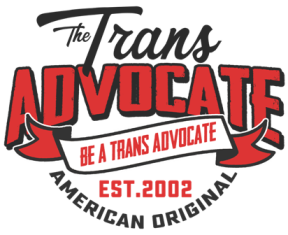Chris Crain has repeatedly suggested 1, 2, 3, 4 that transgender people don’t need to be included in the Employee Non-Discrimination Act because “existing federal civil rights laws have already been interpreted by some judges to protect trans workers.”
A recent EEOC informal discussion letter would suggest otherwise.
Historically, courts and the EEOC have held that Title VII does not prohibit discrimination against an individual because of transgendered status. See, e.g., Ulane v. Eastern Air Lines, Inc., 742 F.2d 1081 (7th Cir. 1984); EEOC Dec. 75-030, ¶ 6499 (CCH) (1974). In the past few years, however, some courts have determined that discrimination against a transgendered individual may constitute unlawful gender stereotyping in violation of Title VII’s prohibition against sex discrimination. See Smith v. City of Salem, 378 F.3d 566 (6th Cir. 2004); Mitchell v. Axcan Scandipharm Inc., 2006 WL 456173 (W.D. Pa. Feb. 21, 2006); Tronetti v. TLC Healthnet Lakeshore Hosp., 2003 WL 22757935 (W.D.N.Y. Sept. 26, 2003); cf. Schroer v. Billington, 424 F. Supp. 2d 203 (D.D.C. 2006) (disagreeing with Ulane and holding that discrimination based on sexual identity may be discrimination based on sex). Other courts, however, have adhered to the view that discrimination based on transgendered status does not violate Title VII. See Etsitty v. Utah Transit Auth., 2005 WL 1505610 (D. Utah June 24, 2005); Oiler v. Winn-Dixie La., Inc., 2002 WL 31098541 (E.D. La. Sept. 16, 2002). Whether discrimination against a transgendered individual may constitute discrimination based on sex in violation of Title VII is a factual question that cannot be determined outside the context of specific charges of discrimination and a complete investigation. – Title VII: Sex Discrimination/Coverage of Transgendered
Reading Jen Burke’s “Breaking the Binary: Sex, Gender Identity, and Gender Presentation (Volume 1: Employment)” was key in my understanding of the rulings of the United States concerning gender and sex. Title VII only covers transgender people if their employer “sex stereotyped” them. Sex stereotyping is a form of harassment directed at a person because that person does not conform to traditional sex stereotypes.” Sex stereotyping is just as illegal against a gay people as it is against transgender or heterosexual persons. Regardless of what you’re told, it’s still legal to fire someone for being transgender.

“Regardless of what you’re told, it’s still legal to fire someone for being transgender.”
That’s (unfortunately) exactly right. While the cases cited do afford *some* protections, they are available ONLY if the plaintiff is willing to hold him/her self out as the sex indicated on their original birth certificate and can show that they were not “enough” of a man or a woman (sex stereotyping — introduced by the Supreme Court in Price Waterhouse).
What’s sad though — it nearly didn’t have to be this way. In the Smith opinion cited in the above quote the court initially included the following paragraph:
“Even if Smith had alleged discrimination based only on his selfidentification as a transsexual—as opposed to his specific appearance and behavior—this claim too is actionable pursuant to Title VII. By definition, transsexuals are individuals who fail to conform to stereotypes
about how those assigned a particular sex at birth should act, dress, and self-identify. Ergo, identification as a transsexual is the
statement or admission that one wishes to be the opposite sex or does not relate to one’s birth sex. Such an admission—for instance the
admission by a man that he self-identifies as a woman and/or that he wishes to be a woman—itself violates the prevalent sex stereotype that a man should perceive himself as a man.”
That language was gutted from the final opinion by threat of an “en banc” appeal.
“Regardless of what you’re told, it’s still legal to fire someone for being transgender.”
That’s (unfortunately) exactly right. While the cases cited do afford *some* protections, they are available ONLY if the plaintiff is willing to hold him/her self out as the sex indicated on their original birth certificate and can show that they were not “enough” of a man or a woman (sex stereotyping — introduced by the Supreme Court in Price Waterhouse).
What’s sad though — it nearly didn’t have to be this way. In the Smith opinion cited in the above quote the court initially included the following paragraph:
“Even if Smith had alleged discrimination based only on his selfidentification as a transsexual—as opposed to his specific appearance and behavior—this claim too is actionable pursuant to Title VII. By definition, transsexuals are individuals who fail to conform to stereotypes
about how those assigned a particular sex at birth should act, dress, and self-identify. Ergo, identification as a transsexual is the
statement or admission that one wishes to be the opposite sex or does not relate to one’s birth sex. Such an admission—for instance the
admission by a man that he self-identifies as a woman and/or that he wishes to be a woman—itself violates the prevalent sex stereotype that a man should perceive himself as a man.”
That language was gutted from the final opinion by threat of an “en banc” appeal.